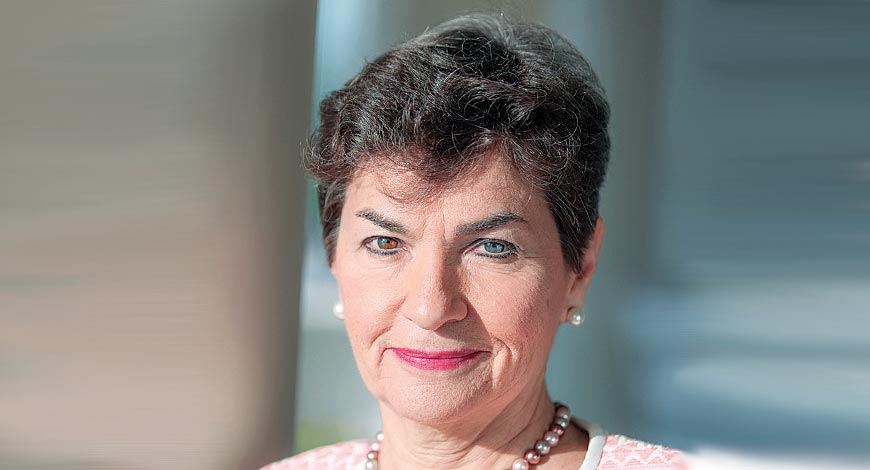Investors, insurers and banks are already taking concrete steps to reduce their exposure to the opportunities of the past and investing in the opportunities of the future
By Christiana Figueres
There are three key facts about climate change that will impact the future of sustainability. The first, is that climate change is already with us, and none of us are free from its impacts. With just over 1C of warming, we are witnessing changes in our ice caps, oceans and weather that are unprecedented in human history. All of these changes impact the most vulnerable the most, and no matter where we are in the world, we can no longer avoid looking global warming straight in the face.
The second, is that addressing the causes of climate change, and staying within the boundaries articulated in the Paris Agreement, represents the most extraordinary opportunity, unique in our lifetime, to transform our global economy so that everyone can prosper.
Earlier this year at the World Economic Forum in Davos, Anand Mahindra, Chairman of the Mahindra Group, pointed to the fact that tackling climate change over the next two decades represents a $6 trillion business opportunity. He declared the trade-off between choosing to do something that improves climate and growth or profits, a ‘myth’.
Investors, insurers and banks are already taking concrete steps to reduce their exposure to the opportunities of the past and investing in the opportunities of the future. Over a hundred companies globally, including Mahindra Sanyo Special Steel, now have approved Science-based Targets to reduce their greenhouse gas (GHG) emissions in line with the Paris Accord.
Cities are acting in their own interests too. Rajkot and Panaji for example, are among the 7,400 cities from around the world that have joined the Global Covenant of Mayors for Climate & Energy to help them capitalise on decarbonisation opportunities for the benefit of their citizens. Rajkot is the first Indian city to commit to a climate change mitigation target through the Low Emission Development Strategies, which contribute to India’s Nationally Determined Contributions (NDCs). The third, most inspiring piece pertinent to the future of sustainability, is the formidable determination of the global community to keep on scaling up and accelerating climate action.
Despite headwinds, the world is still united behind the historic Paris Agreement. This resilience is underwritten by the exponential shifts to renewable energy and the electrification of transport, which are bringing health benefits to millions. Unthinkable just two years ago, renewables are now already cost-competitive with fossil-powered energy.
In India, renewable energy power generation grew a remarkable 22 per cent between April and December in 2017, and the International Renewable Energy Agency has recently predicted that renewables will actually outcompete fossils by 2020. Carbon Tracker has predicted that electric vehicles will reach cost parity with the internal combustion engine by 2020, without subsidies. The direction of travel is well and truly set.
In September this year, non-state actors from around the world will gather at the Global Climate Action Summit in San Francisco to harness these exponential shifts and further accelerate the pace of climate action. The aim is to give our national leaders the confidence they need to step up their own ambition under the Paris Agreement.
I encourage you to consider how you might take part in that moment from wherever you are, and to actively participate in one or more of the Summit’s five challenge areas: Healthy Energy Systems, Inclusive Economic Growth, Sustainable Communities, Land Stewardship and Transformative Climate Investments.
The future of sustainability is undeniably exciting.
—
Original article on Business World: http://www.businessworld.in/article/The-Future-of-Sustainability-And-Climate-Change/11-05-2018-148923/
